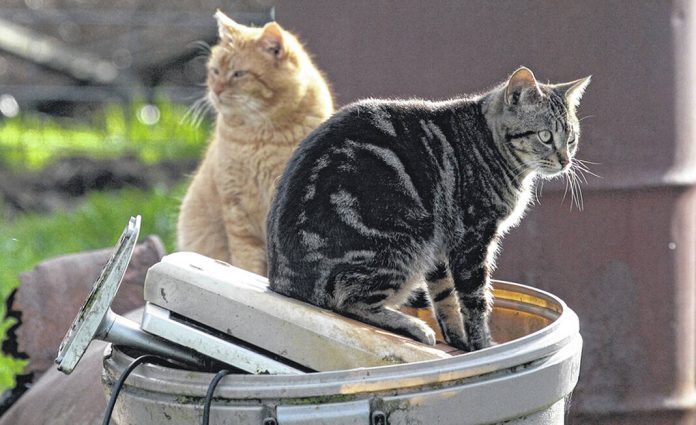LIMA — The city of Lima took action with a stray animal problem a few years ago.
A year after the implementation of the Spay and Neuter Assistance Program, which offers vouchers to anyone eligible to fund operations for those animals and others with homes, the city is noticing improvement in the situation.
“Just the sheer interest in the program last year that people had, even from outside of the city, has met expectations because we had a lot of calls again,” Lima council member Peggy Ehora said. “I love the veterinarian community here because they’ve been really receptive to helping fix the problem and that’s what is important.”
Deputy public works director for the city Ric Stolly said the problem of cat and dog overpopulation has been present in Lima for many years.
“It’s a situation where the population has grown and needs to be addressed,” he said. “The city felt it was time to step up and help out. They’re proceeding to help with curbing the problem as best we can.”
Lima has 66 vouchers available for the program to help cover all or most of the cost of operations at participating veterinary establishments around the area, funded entirely by donations.
And Stolly, who heads the city’s parks and recreation department, is responsible for managing the cat side of the voucher program.
“Anytime you can reduce the number of unwanted or uncared for animals, you’re helping the cats and you’re helping the community,” he said. “It reduces the number of animals hit by cars, the number of animals that are starving to death and the number of animals at risk of being poisoned. We started the first of March this year and we’ve already gone through 23 vouchers so we have about 43 left and the month is almost over.”
Stolly said people are calling the department for vouchers as early as the beginning of the year.
“Are we going to solve the problem? I don’t think so,” he said. “But we’re going to do everything we can to help draw awareness and put some skin in the game.”
Aside from the issues Stolly raised, letting dogs and cats go without sterilization can have drastic effects on their populations, exacerbating problems like aggression exponentially, especially with cats.
“Cats can actually get pregnant again when they’re still nursing the previous litter so that’s the population just explodes when they’re not fixed,” Dr. Chad Higgins of Amanda Animal Hospital said. “Dogs only go into heat twice a year so it’s not quite as big of a deal, but to prevent unwanted animals and prevent them from being euthanized, spaying and neutering is important for the community. Neutering male dogs makes them less likely to roam away from home and decreases their tendency to be aggressive toward other dogs or animals.”
Higgins added that neutering male cats can make their urine less pungent and less likely to attract other cats, which can prevent fights that result in serious injury.
“What a lot of people don’t understand is that if you trap them and get rid of them, it opens up the area for more cats to come,” he said. “If they are spayed and neutered and stay in the area, then a lot of times they will keep other cats from moving into the area. So having a population of cats that are fixed, keeps other cats out and obviously prevents them from reproducing.”
Ehora said that she first became interested in spaying and neutering after caring for a stray with a litter in her neighborhood.
“As someone who’s personally taken care of a colony and has helped neighbors take care of colonies, we have a lot of people who will call and ask for help to fix them if they trap the cats,” she said. “A lot of people have animals that they will feed, but they can’t afford to fix them or they can’t deliver the animal to the doctor. Last year, we ran out of vouchers early and it’s going strong again so I hope people keep taking advantage of it because we’ve committed to keep refunding this until we can make a dent.”
Getting involved with the program is as easy as reaching out to the parks and recreation department for cats or the Allen County Dog Warden.
To learn more about the program, visit the page on the city’s website.
According to the United States Humane Society, studies have found that spaying and neutering dogs and cats can improve their lifespans and quality of life by reducing the urge to roam and reducing the risk of certain types of cancers.
Reach Jacob Espinosa at 567-242-0399.







